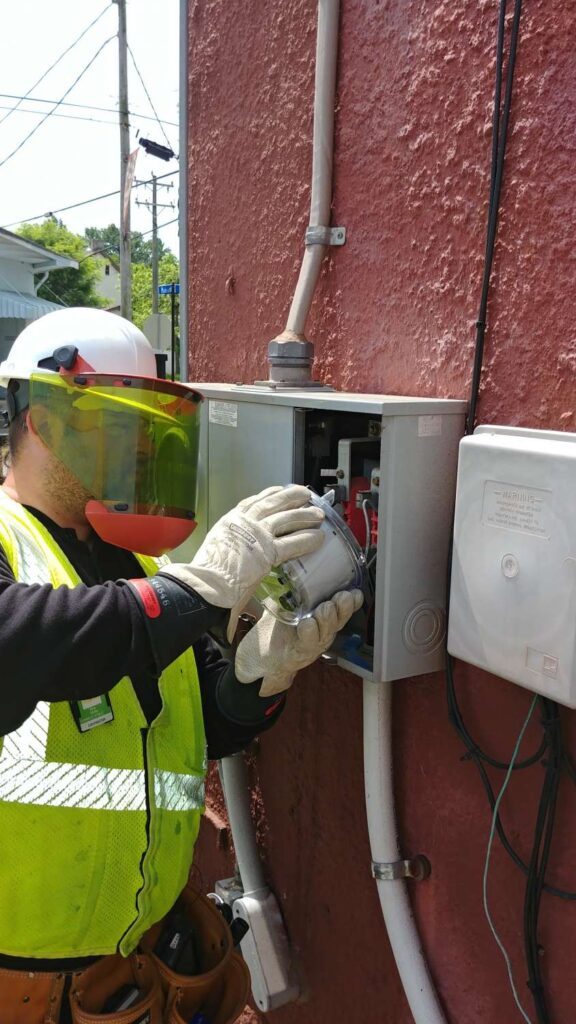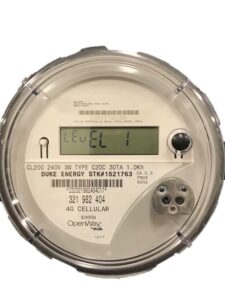AMI, shorthand for Advanced Metering Infrastructure, is being rolled out in the Western Carolinas this year for Duke Energy customers and is projected to be completed by mid-2019.
So, what is AMI? Why does it matter?
AMI, as the name suggests, is a next-generation energy-metering system for residential, business and commercial Duke Energy customers that will replace our current energy-metering system. Often called smart meters, AMI essentially offers the ability to provide two-way communications between a utility customer and the modern grid infrastructure.
In various forms, AMI has already been deployed in many regions nationally as a key component in developing a more efficient and reliable energy distribution system, as well as providing customers with more timely and useful information about how they use electricity.

Historically, our electric infrastructure has been a one-way street with a central generating station sending power out to customers based only on customer demand for energy. As demand goes up, the generating station ramps up production, when demand falls – such as at night – then production is dialed down.
But that traditional utility model is changing rapidly and AMI is a key to making it a smooth and effective transition for the better.
Upgrading to an AMI infrastructure matters particularly in Western North Carolina because of our intermittent winter time requirement for exceptionally high energy demands, known as “peak load.” It’s simply not cost-effective or efficient to build excess generating capacity to meet those few limited peak load periods.
AMI will provide valuable data to Duke Energy and their customers that will enable them to more cost effectively improve efficiency and reduce some of that demand by shifting and managing those loads at the time of peak demand.
Concurrently, new sources of distributed energy, primarily solar photovoltaics in the Western North Carolina region, are expanding and sending electricity into the grid distribution system. This energy needs to be managed by the grid system for efficiency, reliability and safety.

The AMI system is one key to achieving that goal. For example, the new AMI meters will provide more information and services for solar grid-tied customers and make it easier to flip the switch for residential clean energy.
Today’s utility customers want more control over the energy they use and by extension, what it costs. With AMI technology and energy apps emerging rapidly, customers can better benefit from Time of Use programs, Demand Side Management, and more. AMI and smart meters are pivotal in making these apps and programs effective.
Of course, there’s more than just the AMI upgrade in developing a cleaner, more sustainable energy infrastructure. A unique collaboration between the City of Asheville, Buncombe County and Duke Energy Progress, known as the Energy Innovation Task Force, has launched a long-term campaign called the Blue Horizons Project to educate and engage the community in grid modernization. (Learn more about this project on page 48.)
The campaign includes energy efficiency, weatherization, demand response, energy storage technology, electric vehicles, expanding solar energy and much more. However, one of the key initial elements to success will be the new Advanced Metering Infrastructure.
Ned Ryan Doyle is a sustainable energy and environmental advocate with decades of experience and activism. Currently co-chair of the Energy Innovation Task Force’s Technology Work Group, he works from a personally designed and owner-built fully off-grid workshop powered by solar energy. Contact Ned at nedryandoyle@earthlink.net.
You can also view this article as it was originally published on page 74 of the 2018-2019 edition of the directory.

